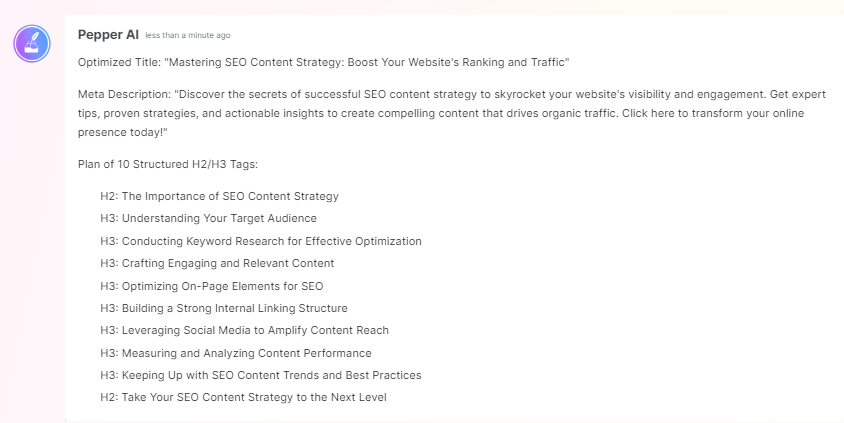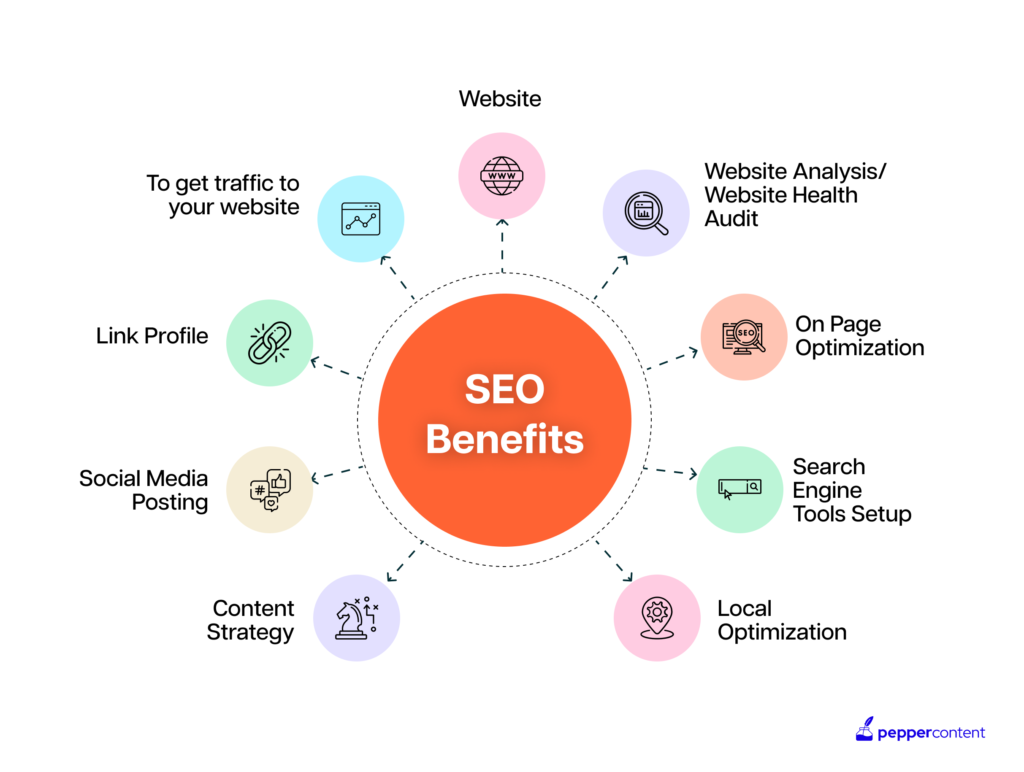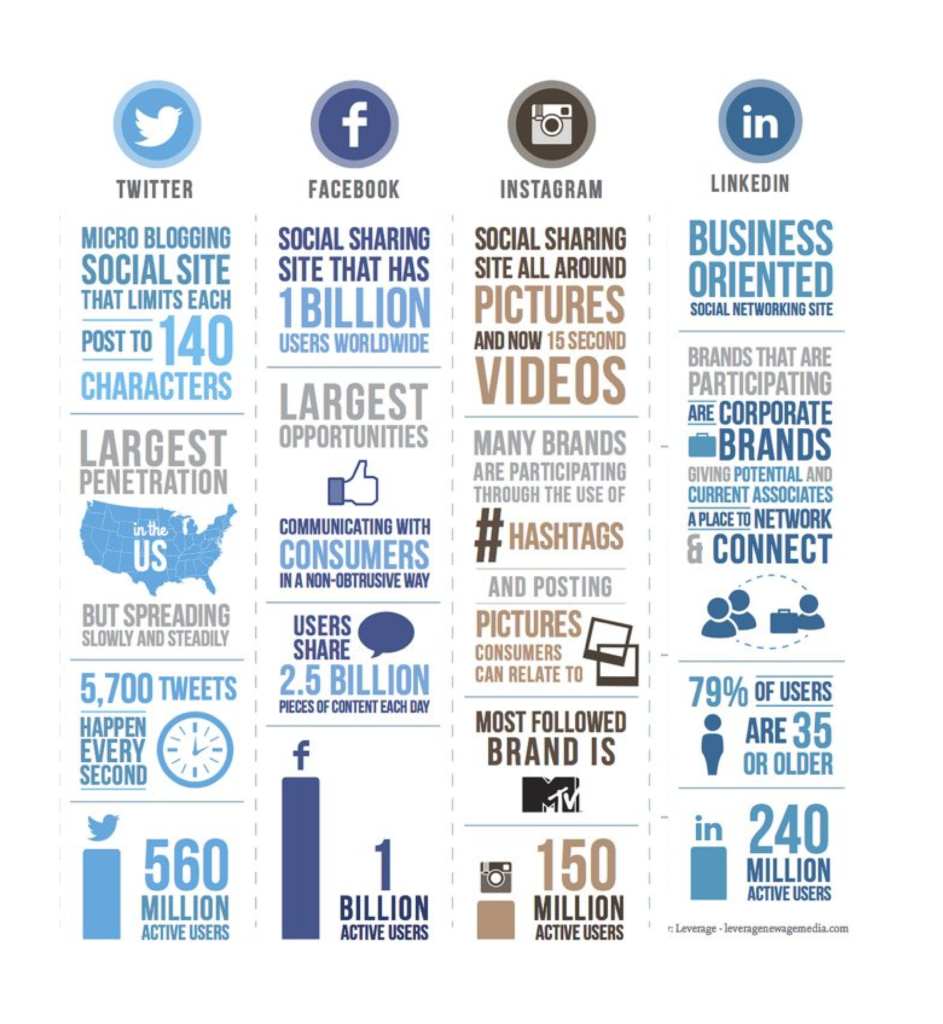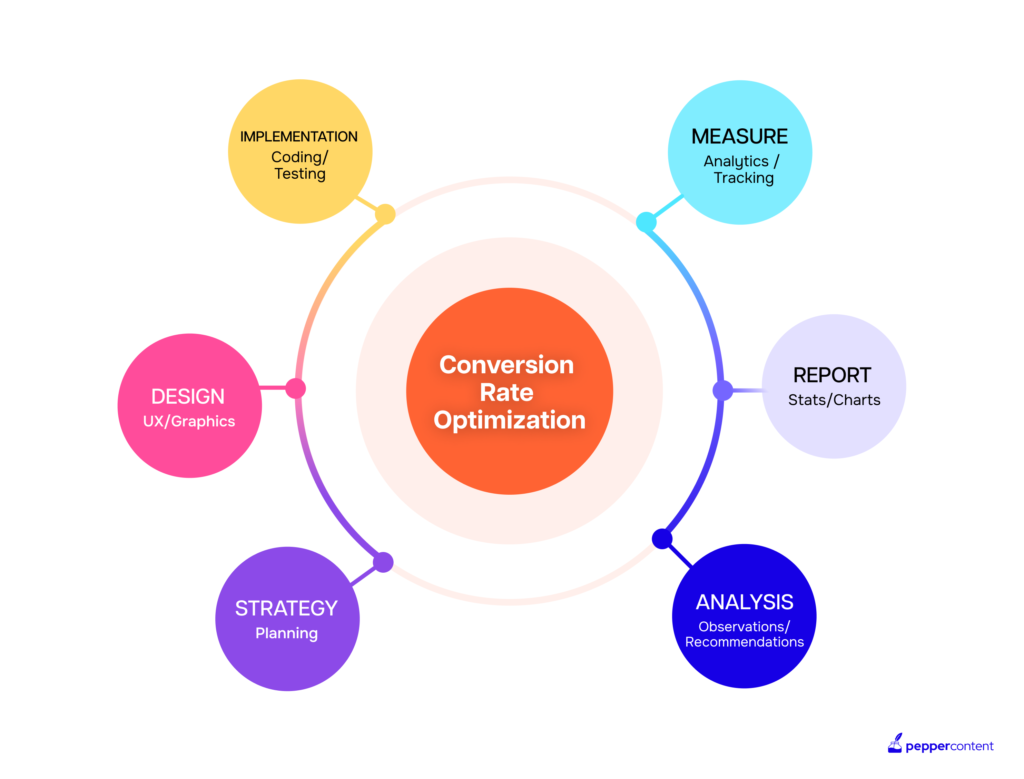Content Strategy For Professionals: Drive Traffic & Convert Leads

To succeed in today’s digital marketplace, a robust content strategy is essential for professionals. A well-planned content marketing strategy can increase traffic and convert leads, leading to business growth and success.
Take Hubspot’s inbound marketing approach as an example – by creating valuable content that addresses their audience’s pain points, they have become a leading authority in the industry.
In this guide, we’ll explore the key components of a successful content strategy for professionals and provide you with real-life examples from successful brands. By the end of this article, you’ll have all the tools you need to drive traffic and convert leads for your brand.
Understanding your Content Marketing Target Audience
Understanding your content marketing target audience is crucial in driving traffic and conversions. Without knowing who your audience is, it’s impossible to create content they will find engaging and relevant. There are various tools available to help you gather data about your target audience, such as Google Analytics, Facebook Insights, and Instagram Analytics.
By analyzing the data, you can learn about your audience’s demographics, interests, behaviors, and preferences. Armed with this information, you can tailor your content to address their specific pain points.
For instance, Dollar Shave Club’s witty ads and language targeting millennial men have been successful because they speak to their unique needs for convenience and affordability. By tapping into their audience’s sense of humour and lifestyle aspirations, Dollar Shave Club has managed to build a loyal customer base.
Creating High-Quality Content
Creating high-quality content is crucial for engaging your target audience and driving traffic to your website. The internet is saturated with content, so it’s important to create something that stands out from the crowd.
One of the first steps in creating quality content is a compelling headline – something that grabs people’s attention and entices them to read on. Use power words, and numbers, or ask a question to pique interest.
Formatting also plays a significant role in creating an engaging piece of content. Break up long paragraphs into shorter ones, use bullet points, and add relevant images or infographics to break up the text. This makes it easier for readers to consume the information and keeps them engaged.

One great example of high-quality content is BuzzFeed’s viral quizzes that cater to a wide range of interests and personality types. The quizzes are often humorous and light-hearted, which makes them shareable across social media platforms. Similarly, Tasty’s quick recipe videos have become a massive phenomenon due to their visual appeal and simplicity in the presentation.
Maximizing Visibility through SEO
Search engine optimization (SEO) is the process of optimizing your website to rank higher in search engine results pages (SERPs). Having a strong SEO strategy is crucial to driving traffic to your website. Here are some tips to help you maximize visibility through SEO:
- First, conduct thorough keyword research to identify relevant keywords and phrases that your target audience is searching for. This will help you optimize your content around those keywords and improve your chances of ranking higher in SERPs. With Pepper’s Keyword Discovery tool, you can now, build a Keyword Universe in only under 15 mins!
Second, make sure to optimize your meta descriptions and titles. Meta descriptions provide a summary of what your content is about, while titles give readers an idea of what they can expect from your content.
Looking for a tool to solve your SEO content queries? Fret not because Pepper AI is here. By entering your focus keyword, you can get your hands on Optimised Titles, Meta Description, and Hn Tags.

Third, ensure that your website is mobile-friendly. With more and more people accessing the internet on their mobile devices, having a mobile-friendly website can greatly improve user experience and increase the likelihood of users returning to your site.
One successful example of an effective SEO strategy comes from Moz. By implementing on-page optimization tactics like improving internal linking and optimizing meta tags, Moz was able to increase organic traffic by 170%.

Social Media Marketing Strategies
To drive content marketing traffic and convert leads, social media marketing is an essential component of any content marketing strategy for professionals. With billions of active users across different platforms, social media presents an opportunity to connect with your target audience. From Facebook to Instagram, Twitter, and LinkedIn, each platform provides unique ways to promote brand awareness.
For instance, Wendy’s Twitter account is known for its witty and humor-filled tweets that engage its audience while promoting its brand. Another example is Oreo’s Instagram page which uses visually appealing content to showcase its products creatively.
Therefore, it’s crucial to identify the right platform for your brand and create a content strategy tailored to suit the audience.

Conversion Optimization Techniques
Are you struggling to turn your website visitors into leads or customers? Conversion rate optimization (CRO) is the solution! CRO is the process of optimizing your website to increase conversion rates. Here are a few tips to get started with CRO:
Include clear calls-to-action (CTAs): Make sure your CTAs are visible and persuasive enough to encourage visitors to take action.
Optimize landing pages: Ensure that your landing pages are user-friendly, visually appealing, and convey a clear value proposition.
Conduct A/B testing: Test different variations of your website elements like headlines, CTAs, or images to see what works best.
Salesforce is an excellent example of a brand that has used CRO techniques to increase conversions. By simplifying their registration form and placing it on the homepage, they were able to decrease the bounce rate by 27% and increase conversions by 35%.

In conclusion, a well-planned content strategy for professionals is vital to drive traffic and converting leads. By identifying your target audience and creating high-quality content that resonates with them, you can increase engagement and promote brand awareness. Maximizing visibility through effective SEO tactics and social media marketing strategies can further enhance your reach.
Additionally, implementing conversion rate optimization techniques can help turn visitors into customers. Remember, an effective content marketing strategy is an ongoing process that requires consistent effort and adaptation. By staying up-to-date with the latest trends and continuously improving your approach, you can achieve lasting success in today’s competitive market.
FAQS
1. How does a content strategy drive traffic?
A content strategy for professionals is the backbone of any successful digital marketing campaign. It involves creating and distributing valuable, relevant, and consistent content to attract and engage a target audience. By understanding your audience’s needs and preferences, you can create content that resonates with them, thereby driving more traffic to your website.
2. Can a content strategy help convert leads?
Absolutely! A well-planned content strategy can play a crucial role in converting leads into customers. By consistently delivering high-quality content that addresses their pain points and offers solutions, you establish yourself as an authority in your industry.
3. How does SEO tie into a content strategy?
SEO and content strategy go hand in hand. By optimizing your content for search engines, you increase your chances of ranking higher in search results, driving more organic traffic to your website.
4. How can I measure the success of my content strategy?
Measuring the success of your content strategy for professionals is crucial to ensure you’re on the right track. Key performance indicators (KPIs) such as website traffic, engagement metrics (likes, shares, comments), conversion rates, and customer lifetime value can provide valuable insights into the effectiveness of your content strategy.
Latest Blogs
Explore how Google’s 2025 AI search updates triggered ranking chaos. Learn actionable strategies to adapt your SEO for AI Overviews, zero-click searches, and SERP volatility. Stay ahead now.
Learn how to rank on AI search engines like ChatGPT, Perplexity, and Gemini by optimizing your content for authority, structure, and relevance. Stay ahead in AI-driven search with this strategic guide.
Explore the best healthcare SEO services for your medical practice. Improve online visibility and effectively reach more patients in need of your services.
Get your hands on the latest news!
Similar Posts

Content Strategy
5 mins read
Choosing The Best Healthcare Marketing Agency For Effective Content Solutions

Content Marketing
4 mins read
Top 10 Agencies B2B SaaS Content Marketing for B2B Success

B2C Marketing
5 mins read